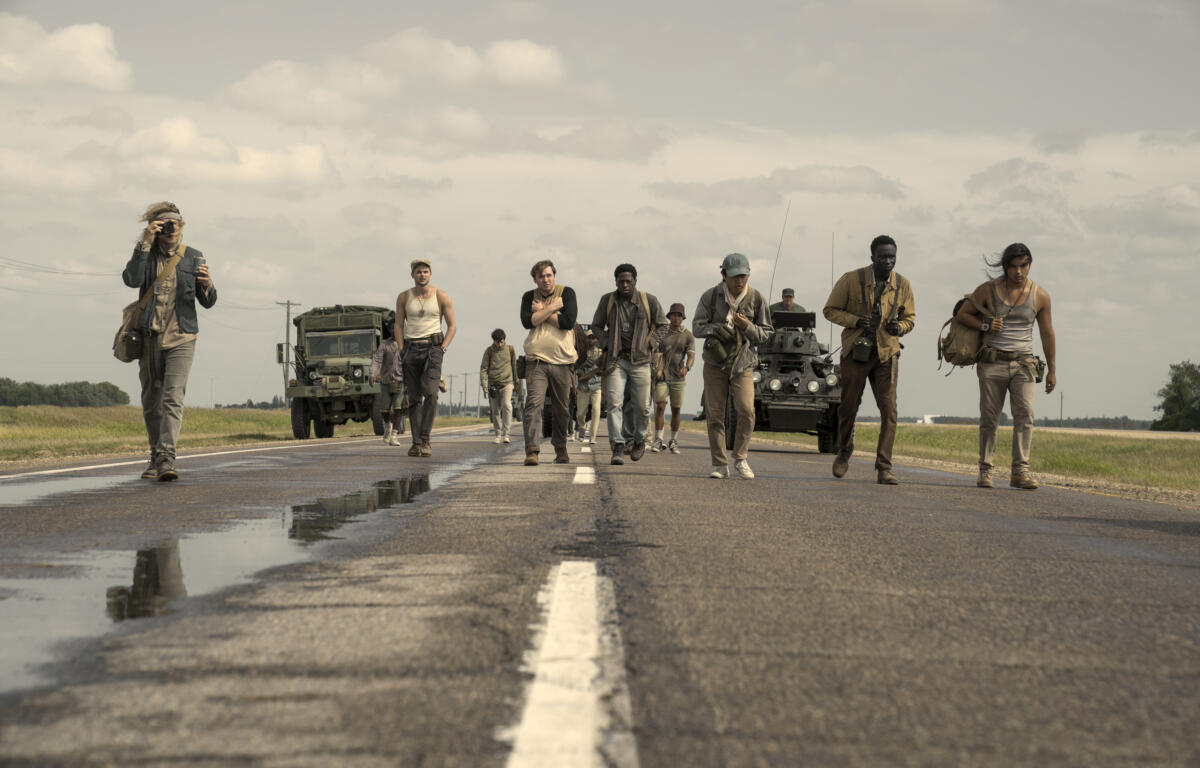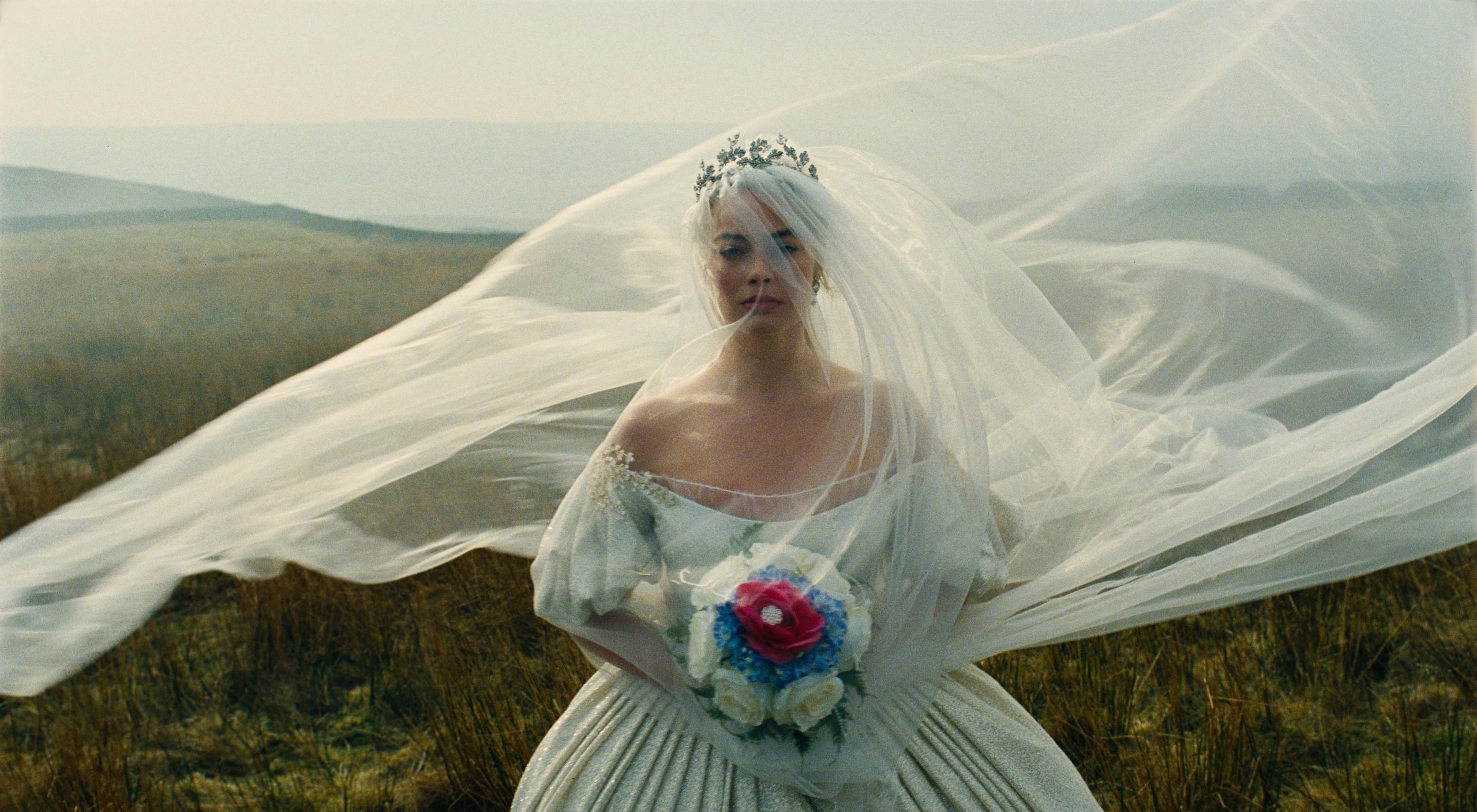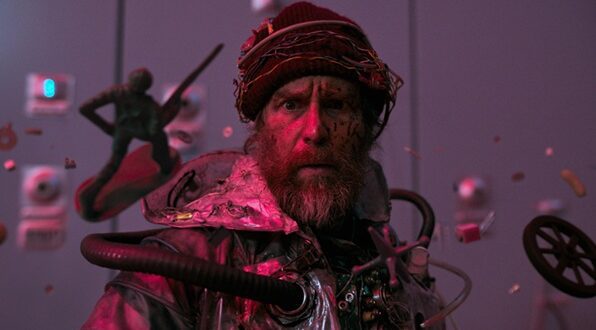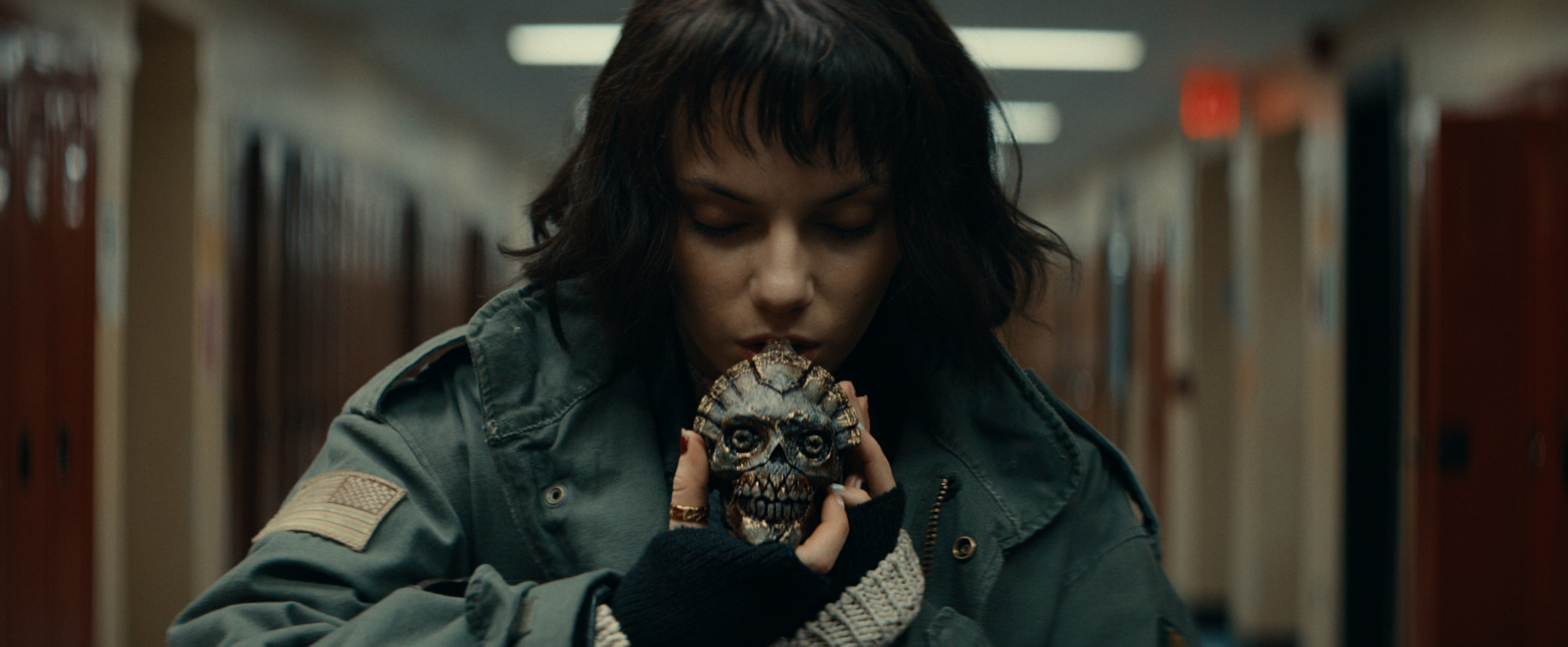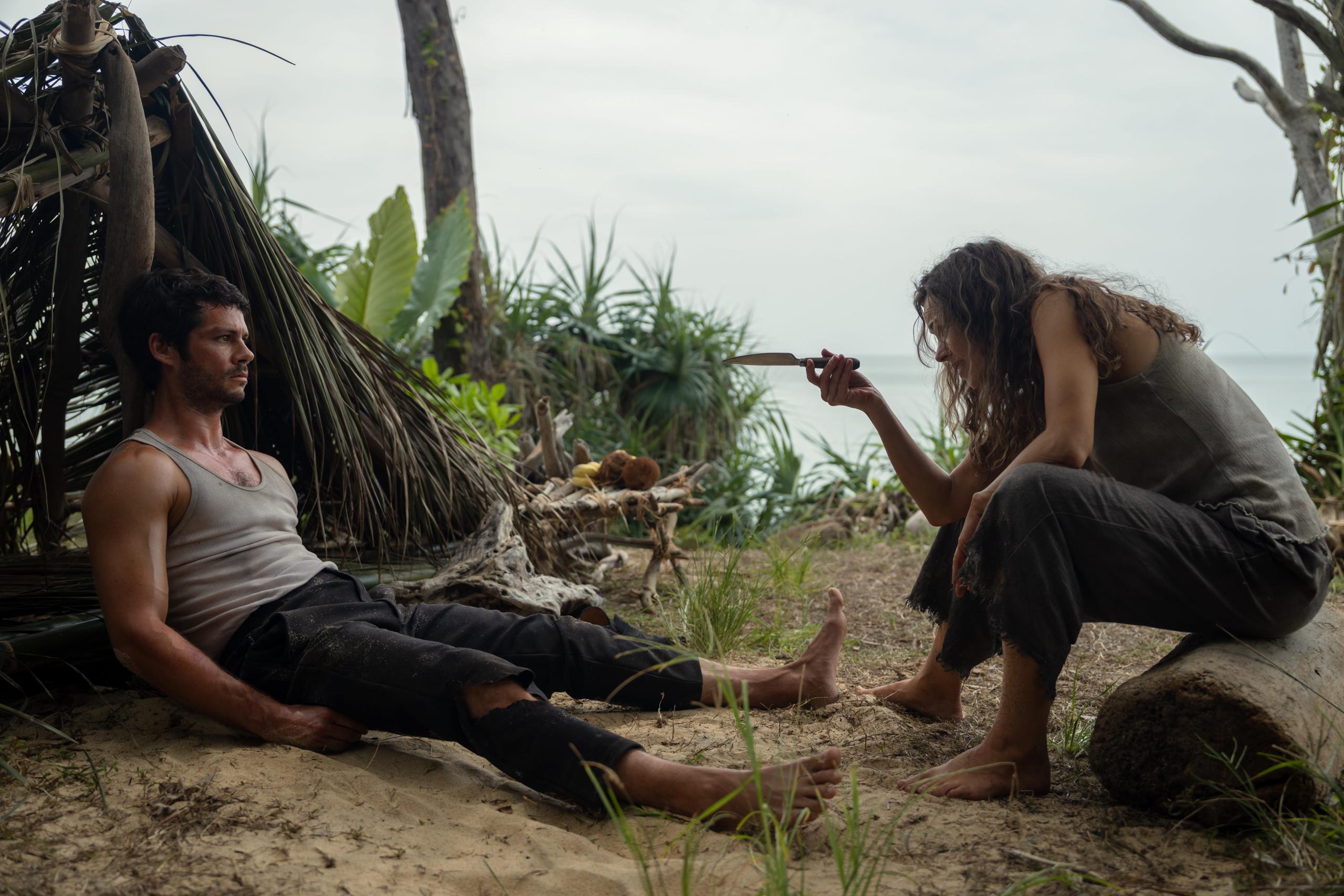ASHEVILLE, N.C. (828newsNOW) — “The Long Walk,” adapted from the Stephen King novel and directed by “Hunger Games” franchise helmer Francis Lawrence, is a brutal dystopian movie about 50 young men walking to their deaths on a long stretch of highway. Surprisingly, it’s about the power of friendship, too.
“THE LONG WALK” (2025, 108 min., directed by Francis Lawrence)
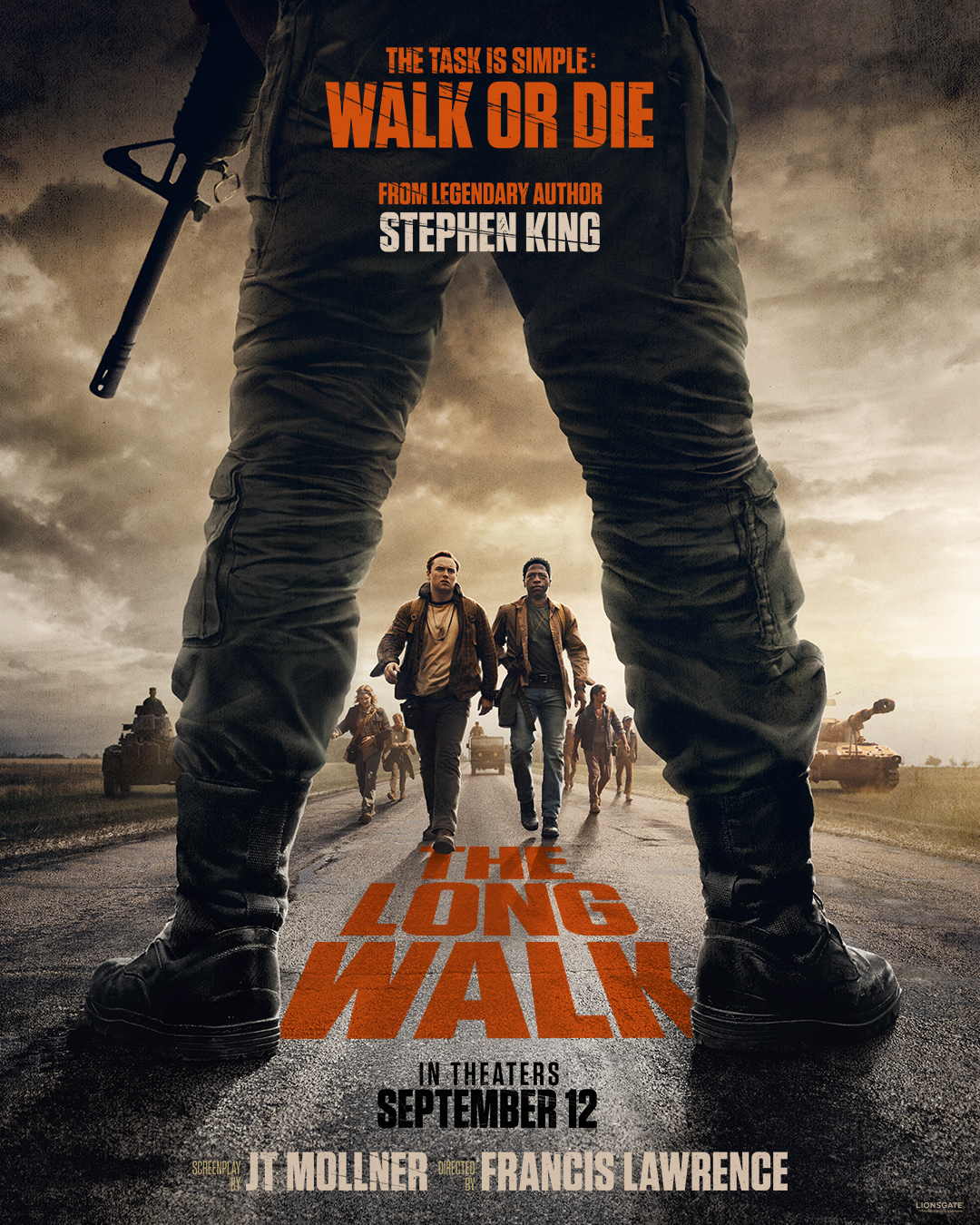
“The Long Walk,” a new dystopian nightmare directed by Francis Lawrence and adapted from the Stephen King novel, strode into theaters this past weekend.
The film is set in a dystopian version of the United States beset by poverty and gripped by an authoritarian regime, which televises an annual competition called The Long Walk, a competition of elimination between 50 young men from around the country. The rules of The Long Walk are simple: walk until you can walk no longer. The goal is to last the longest. If you drop below a walking speed of 3 mph, you will receive a warning. After three warnings, you are shot dead by supervising soldiers. If you walk at pace for an hour, one warning will be taken off your record. You may not leave the road or stop for any reason, including to use the bathroom or tie a shoelace, but food and drink are provided to you. If you outlast the 49 other competitors, you win fame, wealth and a wish for whatever you might desire.
For Lawrence, the director behind four of the five movies in the “Hunger Games” franchise, “The Long Walk” is familiar territory. Once again, the director is tasked with bringing to life a dystopian, fascist version of the United States fixated on teenage death as entertainment. However, compared to the bloodless, high-concept, PG-13 adventures of Katniss and Peeta, “The Long Walk” is a dirty, grisly affair, riddled with F-bombs, bloody kills and even several revoltingly realistic depictions of excrement excretion.

The intensity of the film is its most winning attribute. For a movie with such a straightforward premise, “The Long Walk” is surprisingly twisty, injecting thrills into its slow march of death at every turn. In the best scene of the movie, a nighttime climb up a hill becomes a high-pressure set piece, rivaling the excitement of any of the “Hunger Games” arena battles. There should be surprises in store for everyone, including King readers. The film is a mostly faithful adaptation, but there are a few big steps off the beaten path of the novel.
The two performances at the center of “The Long Walk” are also a highlight. Cooper Hoffman, son of the late, great Philip Seymour Hoffman – himself an alum of the “Hunger Games” franchise – stars as Ray Garraty, the protagonist of the King novel and a walker with a personal vendetta against The Major, the dictatorial figurehead of the competition. He is joined on the road by David Jonsson, the breakout star of last year’s “Alien: Romulus,” who plays Pete McVries, a walker who becomes Ray’s close friend and aims to change the world for the better with the Long Walk winnings.
In a cast of character actors — Mark Hamill, for instance, is The Major, performing the role with gruff aplomb — Hoffman and Jonsson are stars. The two excel at communicating the pain and horror of the walk, but their real talents lay in the emotional bond the characters build on the road. The friendship between Pete and Ray feels true and genuine.
The most fascinating and flawed component of “The Long Walk” is its commitment to chamber drama, allowing the tormented teens to wax rhapsodic about their political philosophies, spell out lengthy jokes or fill in their fellow walkers on their life stories with a shocking amount of lease. After the violent executions and painful charley horses, “The Long Walk” is deeply interested in exploring the core theme of friendship, exemplified most through a slew of heartfelt monologues by Hoffman and Jonsson.
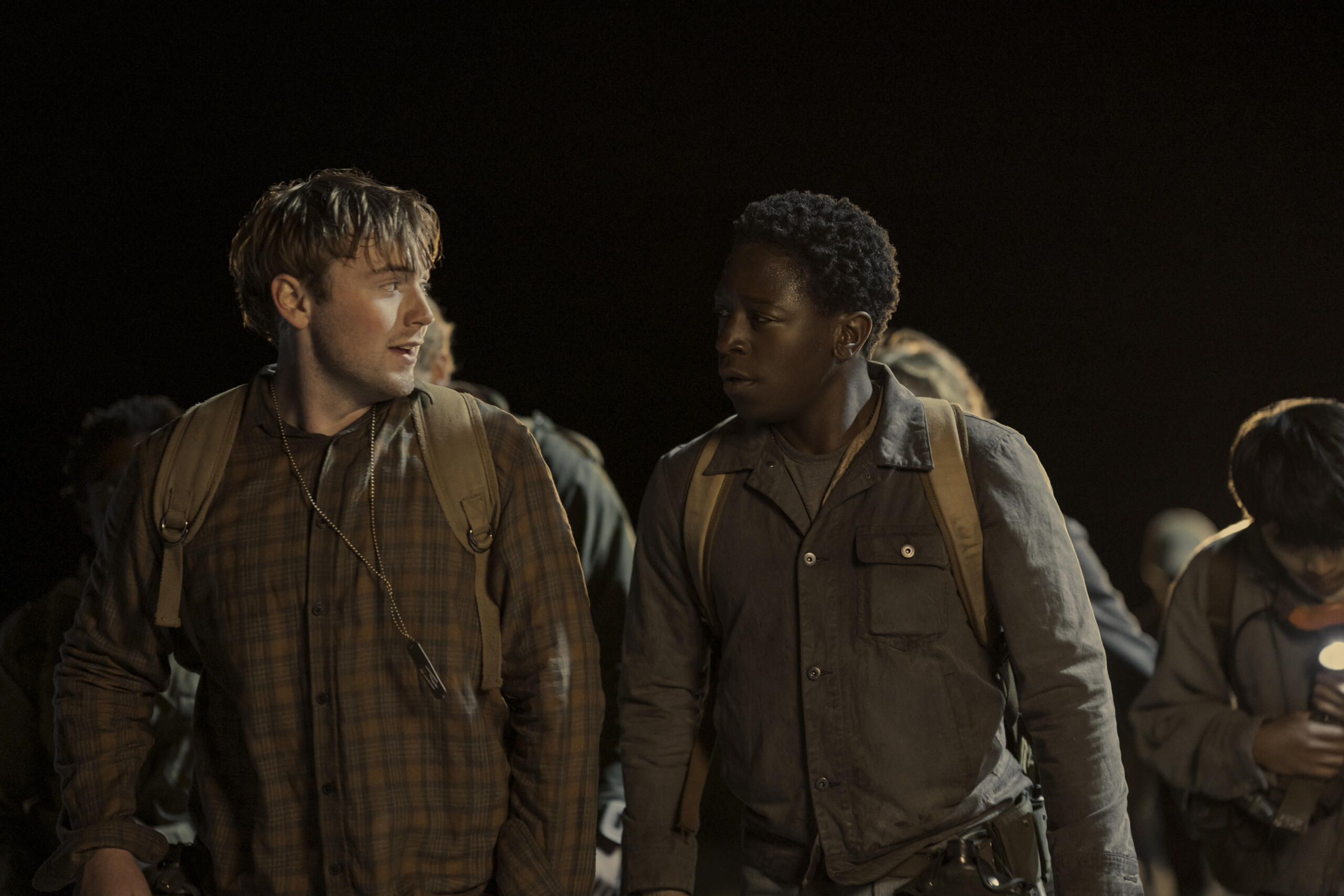
As the number of boys dwindles, remaining walkers are routinely rescued by friends they have made. The loner walkers, by-and-large, are picked off thanks to their lack of community, while Pete, Ray and their group of “Musketeers” prevail thanks to their reliance on each other. However, the inherent tragedy of the Long Walk is that only one boy can win. If he befriends fellow walkers, he will inevitably be forced to watch them die. JT Mollner’s screenplay feigns deep moral acumen by giving a lot of air time to debating that dilemma, but too often boils down to cheerful maxims like “smile because it happened, don’t cry because it’s over,” only written in a dystopian font.
The tension between sincere coming-of-age and dour horror in “The Long Walk” is more like a seesaw than a balancing act. For every gnarly instance of a tank turning a young man’s legs to red paste, Jonsson’s character will point out a rainbow in the distance, quipping things like “but isn’t that beautiful?” For every time Jonsson and Hoffman play catch, a disfigured animal is propped up on the side of the road. For every shot of a crying teenage boy unloading feces on the ground, the gang of guys break out a defiant protest song.
Even the music of the film, composed by The Lumineers member Jeremiah Fraites, is polarized, swinging from melodramatic strings to pensive piano to obnoxious synth in one corny, incoherent score. At least it isn’t boring.
Just like there cannot be two winners of The Long Walk, “The Long Walk” cannot withstand the competition between its saccharine script and vicious visuals. The entire movie plays like it’s walking with a limp: in one scene it’s up, in the next it’s down. It’s a shame it couldn’t decide which it wanted to be. Once “The Long Walk” began, there was no stopping for amputation.

